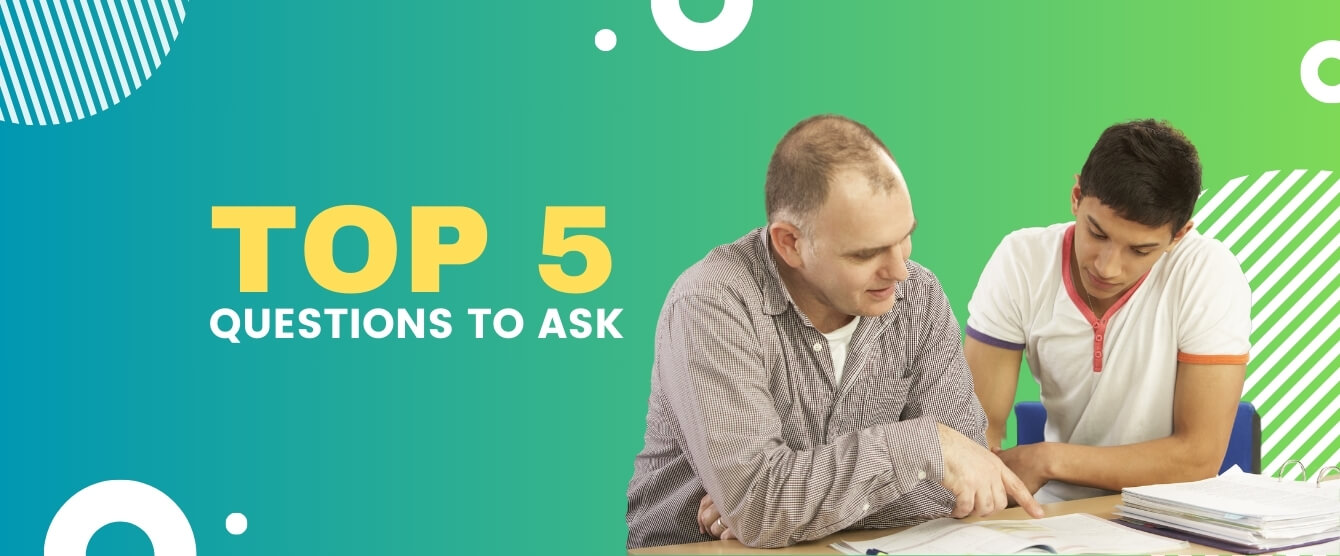Education serves as the cornerstone of a child’s future, laying down the foundation upon which their personal and professional lives will be built. In today’s fast-paced and competitive world, the academic pressures faced by children have escalated significantly. These pressures stem from the desire to excel academically and the need to acquire a diverse skill set that prepares them for the complexities of the future job market. As a result, traditional classroom education, while still crucial, is often found to be insufficient in catering to the individual learning needs of each student. This gap has led to the rise of tutoring programs as critical support systems, transitioning from being considered a luxury to becoming an essential component of the educational ecosystem.
The Benefits Of Tutoring
Tutoring programs offer a range of benefits that can significantly enhance a child’s learning experience. They provide personalized attention and tailored instruction that addresses the specific weaknesses and strengths of the student, something that is difficult to achieve in the more generalized environment of a classroom. Furthermore, these programs can introduce advanced concepts at a pace that suits the learner, fostering a sense of confidence and instilling a love for learning. They also prepare students for various standardized tests, further improving their prospects for higher education and beyond.
However, as the demand for supplementary education grows, so does the complexity of the tutoring landscape. Parents and guardians are now faced with an overwhelming array of options, ranging from one-on-one tutoring and group sessions to online platforms that offer interactive learning experiences. Each of these formats has its unique advantages and caters to different learning styles and needs.
Selecting the ideal tutoring program thus becomes a daunting task, requiring careful consideration of several factors. The following are the top 5 questions we believe are most important to ask when choosing the best tutor for your child.
1. What Type of Academic Support Does Your Child Require?
The initial phase of selecting the most appropriate tutoring program for your child involves a comprehensive assessment of their educational needs. This step is crucial as it lays the groundwork for making an informed decision that would best support your child’s learning journey. Understanding whether your child faces challenges in specific subject areas, such as mathematics, science, English, or history, or whether they require a more holistic approach to their studies, including homework assistance and the development of effective study skills, is essential.
Tailored Support
For children who struggle with particular subjects, tailored tutoring programs can be incredibly beneficial. These programs focus intensely on one subject area, employing specialized tutors who possess a deep understanding and expertise in that field. For instance, if a child finds math concepts difficult to grasp, a math-specific tutor can provide targeted strategies and explanations to help overcome these challenges. This focused approach allows for a deep dive into the subject matter, enabling the child to build a strong foundation and confidence in the subject.
Tailored tutoring is also advantageous for students who excel in their general coursework but seek to advance further in a specific academic field. Whether preparing for competitive exams, pursuing a passion, or aiming for college-level courses, specialized tutoring can offer the rigorous and focused instruction needed to achieve these goals.
Generalized Support
On the other hand, some children might not have trouble with a specific subject but could benefit from a more generalized tutoring approach. This includes students who need help managing their homework across various subjects, developing effective study habits, or improving time management and organizational skills. Generalized tutoring programs are designed to cater to these needs, offering a broader scope of support that encompasses multiple subject areas and essential academic skills.
These programs often employ tutors who are versatile and can guide students through different types of coursework while focusing on improving overall academic performance. They teach valuable study techniques such as note-taking, active reading, test-taking strategies, and critical thinking, which are transferable skills beneficial across all subjects and grade levels.
Assessing Your Child’s Needs
Determining whether your child requires tailored or generalized support involves careful observation and possibly consultations with their teachers. It’s important to identify not just where they are struggling but why. For example, a child struggling in science may actually need help with reading comprehension, which is affecting their ability to understand science texts. In such cases, a more generalized program that improves reading skills could inadvertently boost their performance in science.
Furthermore, consider your child’s learning style and preferences. Some children might thrive under the structure and focused attention of specialized tutoring, while others could benefit more from the variety and holistic approach of generalized support.
2. What Is the Qualification of the Tutors?
The core of any tutoring program’s success lies in the quality and competence of its tutors. The impact a tutor can have on a student’s academic journey is profound, influencing not only their current understanding and grades but also their long-term educational outcomes and attitudes towards learning. Thus, when evaluating tutoring programs, it’s essential to look into the qualifications, experience, and teaching methods of the tutors involved.
Credentials and Experience
Academic Qualifications
A tutor’s academic background provides a foundational understanding of the subject matter they teach. Ideally, tutors should possess a degree in the subject area they are tutoring or in education. This ensures they have a comprehensive grasp of the content and are well-prepared to address complex topics.
Teaching Experience
While academic credentials are critical, practical teaching or tutoring experience is equally vital. Experience equips tutors with the skills necessary to effectively communicate complex concepts in understandable ways and adapt their teaching strategies to meet the diverse needs of students. Inquire about the length and scope of the tutors’ experience, including the age groups and subjects they’ve taught, to gauge their ability to handle the specific educational challenges your child faces.
Assessing Tutor Competence
When considering a tutoring program, don’t hesitate to ask for detailed information about the tutors’ qualifications and experiences. Request references or testimonials from previous students or parents, which can provide insights into the tutors’ effectiveness and the impact they’ve had on other students’ learning outcomes. If available, observing a trial tutoring session can also offer a firsthand look at the tutor’s teaching style and interaction with students.
3. What Methodologies and Technologies Does the Program Employ?
The modern-day tutoring realm is replete with a variety of methodologies and technologies that aim to enhance the learning experience. Be sure to comprehend the instructional approach and the tools used by the program.
Personalized Curriculum and Technology Integration
Does the program use a curriculum that aligns with your child’s school’s curriculum, ensuring continuity and support for in-class concepts? Additionally, consider if the program utilizes effective online platforms, analytics, and AI tools for tracking your child’s progress and improving learning outcomes.
Beyond credentials and experience, a tutor’s method of teaching plays a significant role in their effectiveness. These include:
- Understanding of Learning Styles: Each student has a unique way of learning, whether it’s visual, auditory, reading/writing-preference, or kinesthetic. Effective tutors are adept at identifying and adapting to individual learning styles, ensuring that their teaching methods resonate with the student.
- Engagement Strategies: The ability to keep students engaged and motivated is crucial. Look for tutors who employ interactive and dynamic teaching techniques that make learning enjoyable and stimulating.
- Customization and Flexibility: The hallmark of an excellent tutor is their ability to tailor lessons to the student’s specific needs and be flexible in their approach. They should be capable of adjusting their teaching methods based on the student’s progress and feedback.
- Empathy and Patience: Tutors should possess a high degree of empathy and patience, creating a supportive and positive learning environment where students feel comfortable asking questions and expressing difficulties.
4. Will the Tutoring Program Fit with Your Family’s Schedule and Budget?
When selecting a tutoring program, logistical considerations such as scheduling and budgeting play a significant role in determining the viability of the commitment. A tutoring program might tick all the boxes in terms of educational quality and tutor competence, but if it doesn’t align with your family’s schedule or financial capabilities, it may not be the right fit. Let’s delve deeper into these practical aspects.
Session Scheduling
Mode of Delivery
The mode of tutoring delivery is one of the first logistical aspects to consider. In today’s educational landscape, tutoring programs often offer a variety of formats, including in-person sessions, online tutoring, or a hybrid approach that combines both. Each of these formats has its advantages and considerations. For instance, online tutoring provides greater flexibility and can save commuting time, while in-person sessions may be more effective for students who benefit from face-to-face interaction. Assessing your child’s learning preferences alongside your scheduling constraints will help you decide on the most suitable format.
Timing and Frequency
Equally critical is the scheduling of the tutoring sessions themselves. This includes not just the time of day the sessions are offered, but also their frequency and duration. It’s important to find a balance that fits within your child’s existing commitments—such as school, extracurricular activities, and family time—without leading to burnout. A tutoring program that offers a range of scheduling options can provide the necessary flexibility to accommodate busy calendars. Additionally, the duration of sessions should be long enough to allow for meaningful progress, yet not so long that they become counterproductive due to diminishing attention spans.
Financial Planning
Understanding Costs
The cost of tutoring is a major consideration for most families. Before committing to a program, it’s crucial to have a clear understanding of all the expenses involved. This includes not only the hourly rate or package pricing for the tutoring sessions but also any additional costs such as registration fees, materials, or supplementary support services. Some programs may include workbooks, online resources, or access to specialized software as part of their fees, which can add value to the service provided.
Budgeting
Once you have a detailed breakdown of the costs, compare them against your budget to assess affordability. Consider the long-term commitment required to see significant academic improvement, as tutoring is often not a quick fix but a gradual process. Some tutoring programs offer payment plans or discounts for purchasing multiple sessions upfront, which can make financial planning easier.
5. What Support Services Does the Program Offer Beyond Tutorials?
In the quest for a tutoring program that aligns with the holistic development of a child, it’s essential to look beyond traditional academic tutoring. Education is a multifaceted endeavor that encompasses not just the mastery of subject matter but also the development of critical thinking skills, emotional intelligence, and lifelong learning habits. Therefore, a comprehensive tutoring program should offer an array of resources and encourage parental involvement to support the student’s overall growth.
Additional Resources
A well-rounded tutoring program will often provide supplementary resources that enhance the learning experience. These can include:
- Progress Reports: Regular, detailed reports on a student’s progress are invaluable for tracking their academic journey, identifying areas of improvement, and celebrating achievements. These reports can help tailor future tutoring sessions to address specific needs.
- Access to Libraries or Online Materials: Quality educational materials can significantly enrich a student’s learning. Tutoring programs that offer access to libraries, online databases, e-books, or proprietary learning materials can provide students with a wealth of information that complements their tutoring sessions.
- Extra Support Services: Certain milestones in a student’s academic career, such as standardized tests or college applications, can benefit from targeted support. Programs that offer specialized services for test preparation, essay writing, or application guidance can be particularly beneficial during these critical times.
Parental Involvement
The role of parents in a child’s education cannot be overstated. A tutoring program that values and facilitates parental involvement can make a significant difference in a student’s success. Consider the following when evaluating a program’s stance on parental involvement:
- Regular Meetings: Programs that schedule regular meetings with parents to discuss the child’s progress, challenges, and achievements foster a collaborative environment. These meetings are opportunities to adjust tutoring strategies, set goals, and ensure that the tutoring aligns with the child’s needs.
- Open Communication: Look for programs that encourage open communication between tutors, students, and parents. Being able to reach out to tutors with questions or concerns and receiving timely responses can enhance the support system around the student.
- Parental Engagement: Some programs may offer workshops or resources to help parents better support their child’s learning at home. This could include strategies for helping with homework, fostering a positive learning environment, or understanding educational psychology.
By prioritizing these aspects, parents and guardians can select a tutoring program that goes beyond mere academic tutorials to support the child’s holistic growth. Such a program not only aids in academic achievement but also equips the child with the skills and mindset needed to navigate future challenges successfully. In essence, by choosing a comprehensive tutoring program, parents invest in their child’s ability to turn the pressures of today’s academic environment into opportunities for tomorrow’s success.
A Significant Decision
Choosing the right tutoring program for your child is a significant decision. By answering these five crucial questions, you can ensure that you pick a program that not only addresses your child’s academic needs but also provides a supportive, enriching, and enjoyable learning experience.
Be diligent in your research, ask for referrals, and involve your child in the selection process where possible. Remember, the right tutoring program should not only help your child through educational challenges but should also inspire a love for learning that extends far beyond the program’s duration.
For more information about tutoring, homeschooling, and homework help, sign up for our FREE Bulletin!





